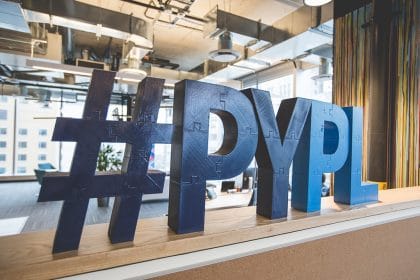According to the regulatory filing of California-based San Jose company, the agency is also investigating how PayPal reports marketing fees it earns from its branded-card program. Notably, PayPal is cooperating with the investigation.
Yesterday, we reported on PayPal Holdings Inc (NYSE: PYPL) Q2 2021 earnings report. The company has not managed to meet analysts’ expectations, with some of the results being quite impressive, but some numbers coming weaker than last year’s. Following the report, PayPal faced scrutiny from both the US Securities and Exchange Commission (SEC) and the Consumer Financial Protection Bureau (CFPB). Currently, SEC and CFPB are investigating whether the fees PayPal paid to the banks that issue its debit cards are consistent with Federal Reserve guidelines.
The probe focuses on the Fed’s Regulation II. The latter requires banks to have two unconnected networks on every debit card they issue. Afterward, retailers should be able to choose which network handles the transaction.
The smallest US banks whose assets are worth less than $10 billion are not subject to this regulation. This drew criticism from large banks, who have argued that tech players would partner with smaller community lenders to charge large fees and gain unfair advantages. To address this issue, the Federal Reserve is already considering changes to its policy governing debit cards.
According to the regulatory filing of California-based San Jose company, the agency is also investigating how PayPal reports marketing fees it earns from its branded-card program. Notably, PayPal is cooperating with the investigation.
PayPal said:
“We have responded to subpoenas and requests for information received from the US Securities and Exchange Commission Enforcement Division relating to whether the interchange rates paid to the bank that issues debit cards bearing our licensed brands were consistent with Regulation II of the Board of Governors of the Federal Reserve System, and to the reporting of marketing fees earned from the Company’s branded card program. We are cooperating with the SEC in connection with this investigation.”
PayPal (PYPL) Stock Plunges amid SEC Investigation News
PayPal stock has been losing positions for the second day in a row. It first dropped following the Q2 2021 earnings report. After the news about SEC investigating PayPal fees, its shares further fell. Yesterday, PayPal stock closed 6.23% down, at $283.17 per share. After hours, it tanked by another 0.73% to $281.10.
PayPal’s market cap is $354.74 billion. Year-to-date, PayPal stock is 20.91% up.
The plunge results from eBay’s migration off of the PayPal platform. According to the company, it will continue to hurt results in the coming quarters.
PayPal CFO John Rainey said:
“We’re now absorbing more pressure from eBay than we had previously expected. The company is planning for eBay’s drag on our revenue growth to be greater than previously expected. The drag will amount to 8.5 percentage points of growth on third-quarter revenue, shaving off $465 million and taking revenue to an estimated $6.2 billion.”
Despite this weakness, some analysts still see a buying opportunity in PayPal’s decline.
next